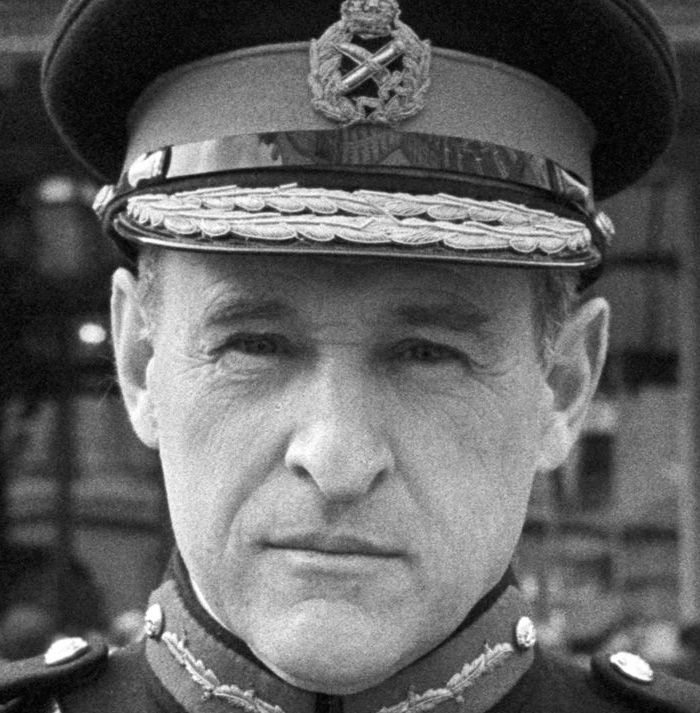A SENIOR British army officer who served in the North of Ireland during the start of Troubles, and faced legal action by victims and relatives, has died.
General Frank Kitson (97) led British military operations in the north at the beginning of the conflict, and went on to become a hate figure for nationalists and republicans after being linked to several atrocities.
The 1st Battalion, Parachute Regiment of the British Army, which carried out the Bloody Sunday and Ballymurphy massacre, had earned the nickname ‘Kitson’s private army’, while the notorious Military Reaction Force (MRF) was involved in the killings of innocent Catholics in the early 1970s and was based at the general’s Palace Barracks HQ in Belfast.
General Kitson was also at the centre of controversy following the McGurk's Bar atrocity in December 1971, which killed 15 Catholics.
Relatives of those murdered by the UVF attack called for Kitson to be questioned over revelations he had knowledge of false reports fed to the media by the RUC, that claimed the IRA were responsible for the blast.
As an architect of the policy of collusion which saw hundreds upon hundreds of killings for which the British state is culpable, Kitson will be remembered by many in ignominy https://t.co/lLIC17v1Z7
— Relatives 4 Justice #NeverGivingUp (@RelsForJustice) January 3, 2024
Ciarán MacAirt, grandson of Kathleen Irvine who was killed in the attack, said the legacy of Kitson during the Troubles will live on for victims.
"General Sir Frank Kitson died a free man but he should have been tried and convicted for war crimes – mainly, but not solely – against the Irish Catholic community in the north of Ireland," he said.
"His dirty fingerprints are all over the McGurk's Bar Massacre cover-up too as he agreed a line of disinformation with the sectarian RUC hours after the explosion.
"In-depth interrogation, torture, psychological operations, pseudo-gangs and the murder of civilians were features of Kitson's counter-insurgency strategy.
"Our families are dealing with the legacy of his war crimes to this day and we will be dealing with them for many years to come."








